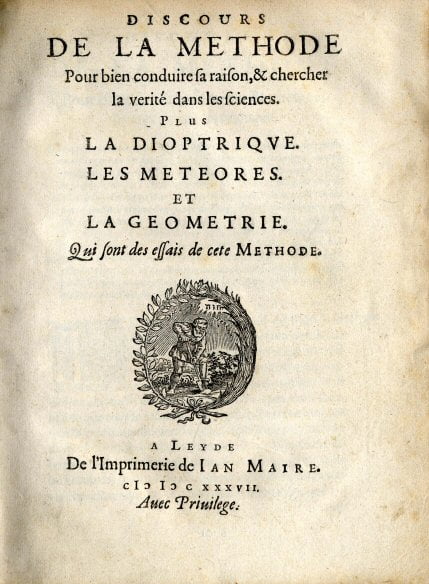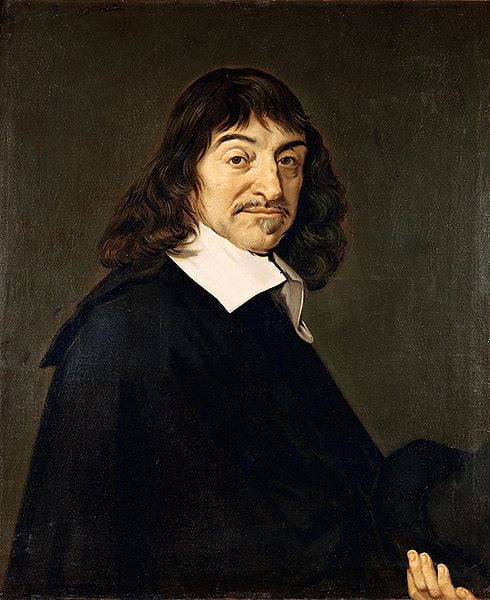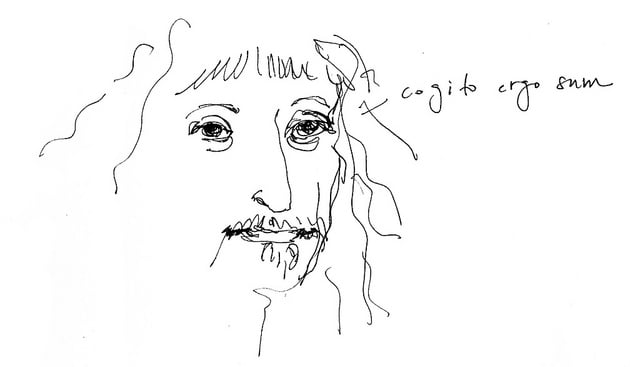Your pocket-sized Guide to… French philosophy: René Descartes
How well do you know your French philosophers? Test yourself and learn something new with our pocket-sized guide to French philosophers. You’ll be sure to impress at your next dinner party…
René Descartes was a French philosopher credited with the most famous philosophical quote of all time: “cogito ergo sum” – “I think therefore I am”. Descartes’ theories caused much scepticism about our knowledge of what we believe to be true.
French upbringing
- Born on 31 March, 1596 in La Haye, Tourraine, France renamed it Descartes in his honour.
- Educated at Jesuit Collège Royale in La Flèche and received his Baccalaureate in Law from the University of Poitiers.
- Served in the army of Prince Maurice of Nassau.
- Died of pneumonia on 11 February 1650 in Stockholm, Sweden.
 La philosophie française
La philosophie française
This French philosopher used his ‘method of doubt’ to build a strong foundation of truth and knowledge. Descartes recognised that most of what he believed to be true came from his senses, and that his senses sometimes deceived him. For example, objects change colour depending on the light that enters our eyes. Therefore, Descartes decided that his senses were not a reliable source of knowledge.
“Je pense donc je suis”
Descartes imagined that there was an evil demon that manipulated his thoughts. He realised that there was no way to prove or revoke this theory – because the demon could be making him think in a certain way.
One thing Descartes was certain of was that he was thinking; whether those thoughts were his own or that of a demon, he was certainly thinking. From the fact that he was thinking, he conceived that he existed. In order to think, one must exist to do the thinking. This led to the most famous philosophical quote of all time: “cogito ergo sum”.

The common English translation – “I think therefore I am” – actually weakens the argument. The French version conveys his argument more successfully because ‘je pense’ can mean ‘I am thinking’ as well as ‘I think’. ‘I am thinking’ more clearly suggests that one exists as a result of their ability to think.
‘I am’ (je suis) is the first person present tense form of the verb ‘to be’ (être), and because Descartes is thinking, he must exist.
Le corps et l’esprit
Cartesian Dualism is the idea that the body and the mind are two separate entities. As Descartes says, the fact that ‘I am thinking’ proves that ‘I exist’ but it says nothing about other people. If the mind and the body are separate, one cannot assume that other people have similar minds to them, simply based on the fact that they have a human body.
The rest of humanity may seem physically similar in terms of appearance, action and behaviour, but they could be completely different in terms of the way they think – if they think at all that is!
What do you think of Descartes’ ideas? Does thinking equate to existence? Join the debate in the comments below.
Read more from our pocket-sized guide to French philosophy:1. Jean-Paul Sartre
2. Simone de Beauvoir
3. René Descartes (this page)
4. Voltaire Image credits:
1. Descartes, by Rafael Robles L.
2. cogito ergo sum, by MarianaLeme
3. Renatvs Des Cartes, by Stifts – och landsbiblioteket i Skara
4. Descartes Discours de la Methode, via Wikipedia



 La philosophie française
La philosophie française




